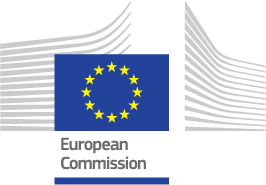First steps with Decidim
Decidim is a digital platform
for citizen participation
Installing Decidim
You can install it yourself or find someone to help you with tech support.
The right tool for you
For big or small organisations, discover how Decidim can cater to your needs.
Decidim in your city
If your city is thinking of deploying participatory policies, find out how you can convince them to do it.
Is Decidim the right tool for you?
Decidim’s flexible features are designed to serve both small and large collectives, public and private organisations, with hundreds or thousands of potential users.
Explore all featuresBacked by technology, democracy and experience
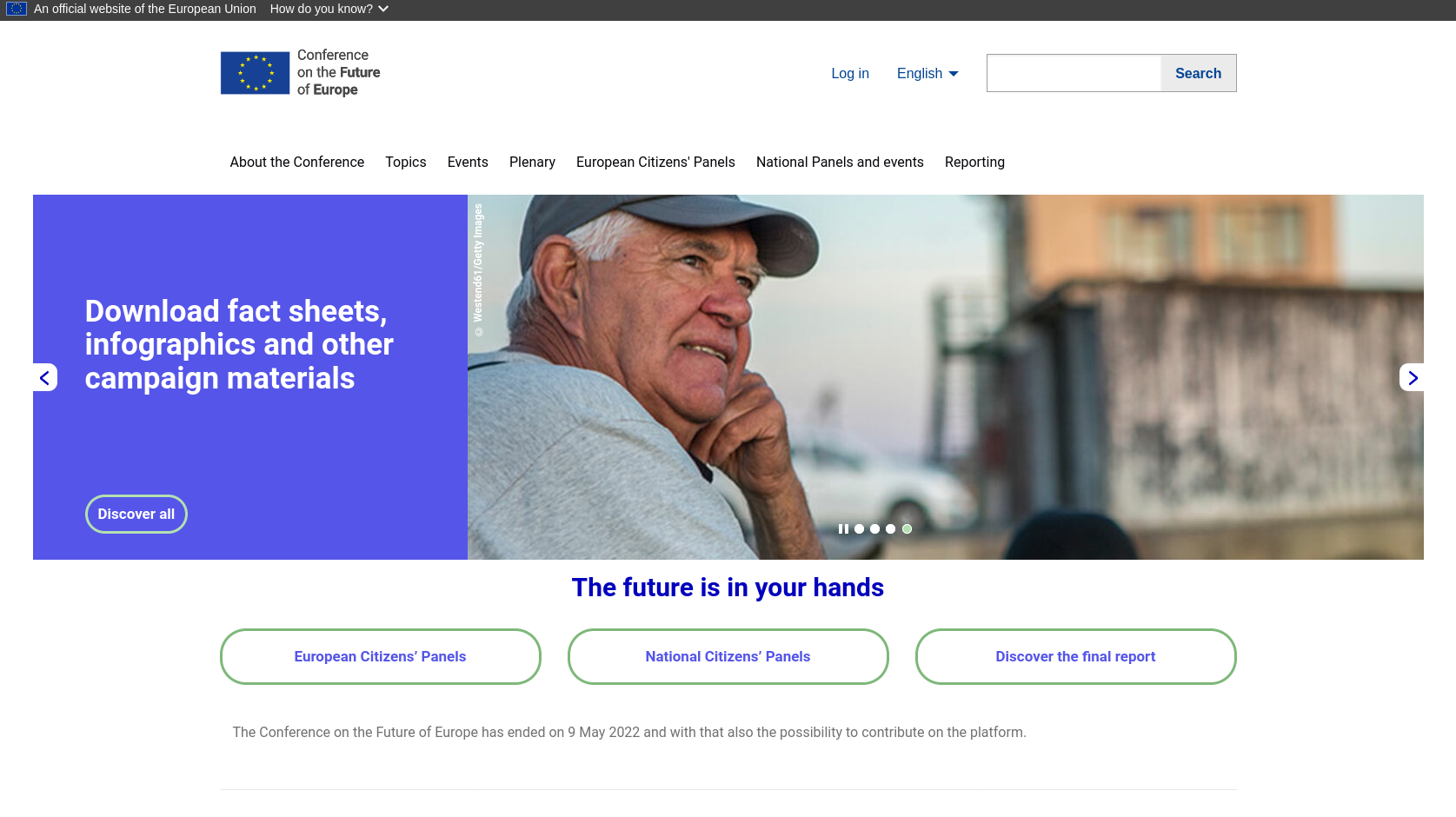
European Commission
The digital platform was launched on 19 April 2021 and was open to contributions until 9 of May 2022. During this...
Read the case study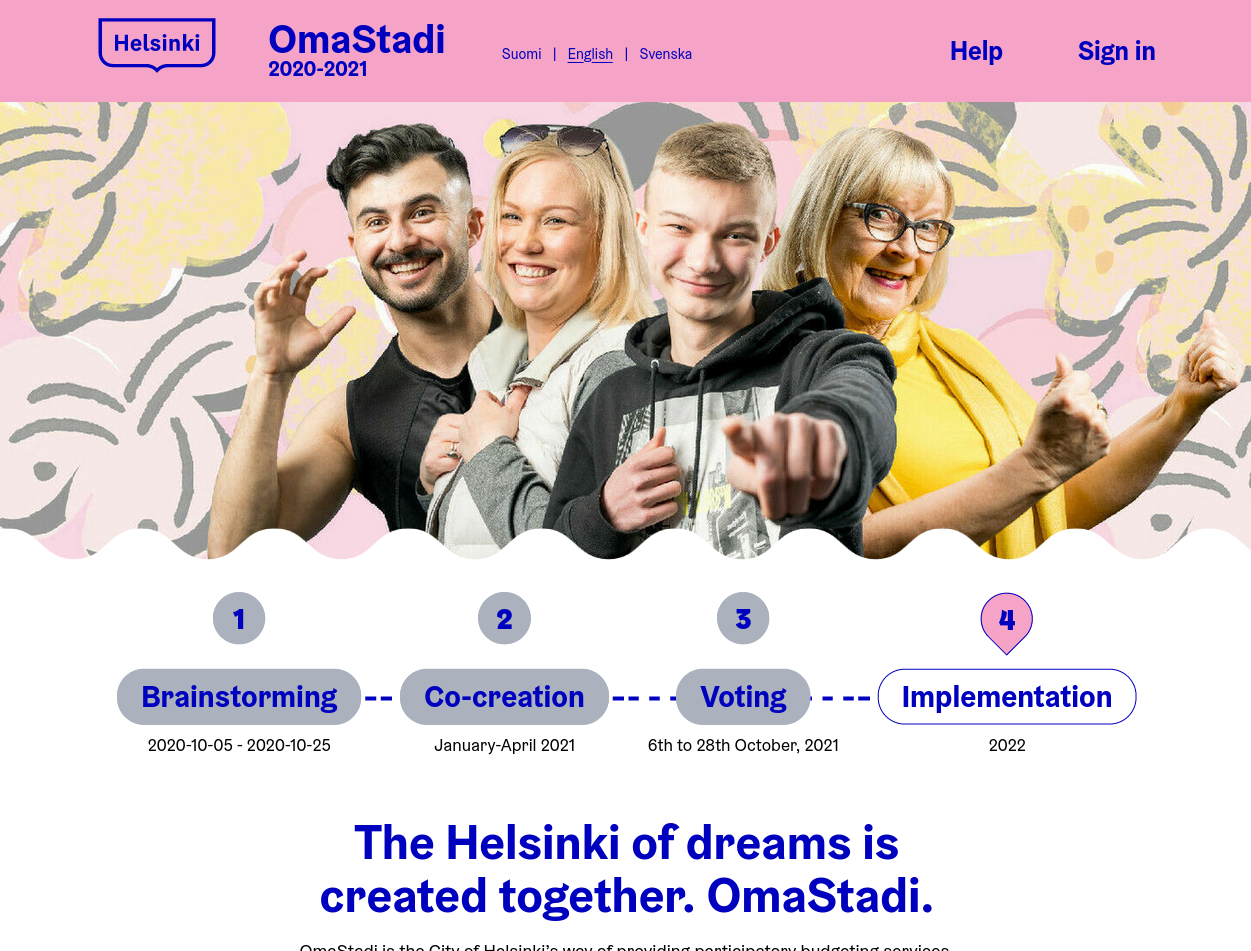
City of Helsinki
We evaluated seven different kinds of participatory budgeting options to find the right platform to support...
Read the case studyRead more case studies on our blog
Who’s behind the platform?
Metadecidim is the community that collaborates in the design of the platform and the development of the project. Together we design and create new features and report bugs for continuous improvement of the platform.
The Decidim Free Software Association is a democratic association for the governance of the Decidim community.
Prosessi alkoi lokakuussa 2019 Euroopan komission viestintä- ja eDemokratia-yksikössä yhteisessä tutkimuskeskuksessa, Euroopan komission tiede- ja osaamispalvelussa. Konferenssin tarpeiden analysointi ja erilaisten työkalujen vertaaminen johtivat avoimen lähdekoodin Decidim-työkalun valitsemiseen sen teknisen kypsyyden, laajan yhteisön ja soveltamiskyvyn takia.
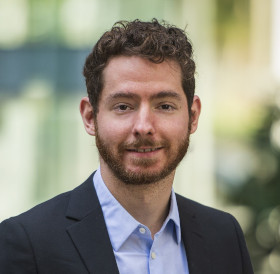 Sivan Pätsch
OpenForum Europe tutkimusjohtaja, Euroopan unioni
Sivan Pätsch
OpenForum Europe tutkimusjohtaja, Euroopan unioni
Decide Mérida -alusta avasi ennennäkemättömän mahdollisuuden kansalaisosallistumiselle kunnallisen kehityssuunnitelman laatimiselle Méridassa 2018-2020. Alustalla oli yli 3 000 vuorovaikutusta, joiden avulla keräsimme ehdotuksia, kommentteja, esityksiä ja tukea saavuttaaksemme suurimman mahdollisen yhteisymmärryksen siitä, mikä on parasta kaupungillemme. Epäilemättä Decide Mérida -alusta tulee jatkossakin olemaan tärkeässä roolissa Méridan kehittämisessä yhä osallistuvamman yhteisön suuntaan.
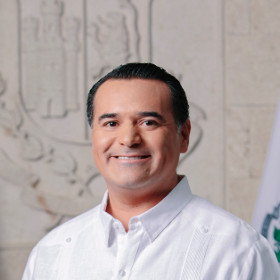 Renán A. Barrera Concha
Meksikon Mérida Yucatánin kunnallinen johtaja. Meksikon Mérida Yucatánin kaupunginvaltuusto
Renán A. Barrera Concha
Meksikon Mérida Yucatánin kunnallinen johtaja. Meksikon Mérida Yucatánin kaupunginvaltuusto
Part of what makes Decidim so powerful is that it adds a level of abstraction to the work separating out the steps of a process and the activities associated with the process. That’s part of the information architecture, so that not only you are saying what is happening at each step but different parts of Decidim behave differently depending on when you are doing or depending on what step in the process you are in. The fact that that’s customizable really allows Decidim to be moulded to how we are doing our work and not our work to be moulded.
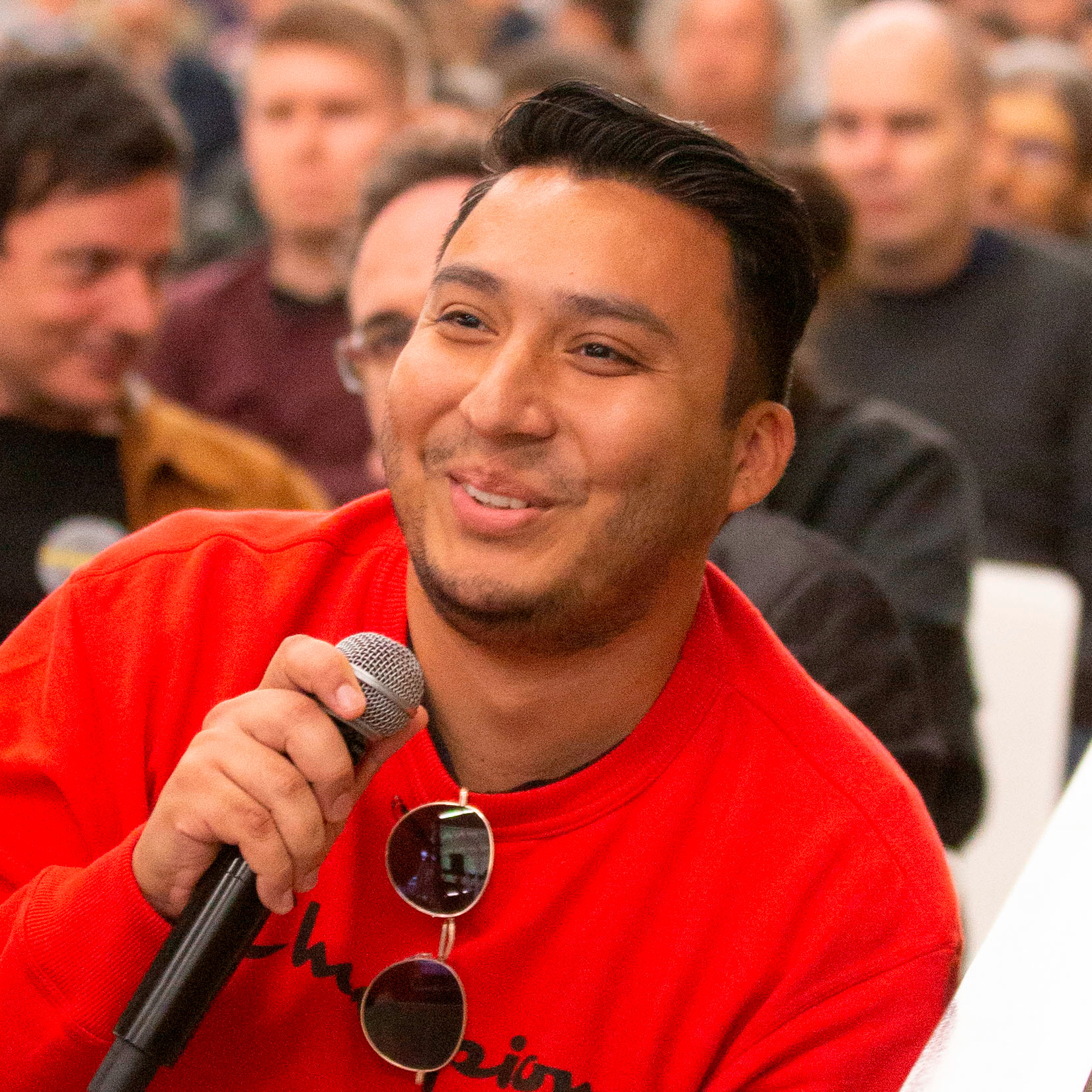 Francisco Tena
Pipeline to Power, working for NYC Civic Engagement Commission
Francisco Tena
Pipeline to Power, working for NYC Civic Engagement Commission
Usein kysytyt kysymykset
What is the Metadecidim community?
Metadecidim is the community of Decidim that collaborates in the design of the platform and the construction of the Decidim project. We meet regularly through the Community Meetings, for issues related to the technological aspects of the platform and the Labs witc are Research oriented meetings. Our annual conference is Decidim Fest. Go to meta.decidim.org to follow the calls closely and if you want to join the community. We'd love to ;-)
I have many doubts, of all kinds...where can I ask them or solve them?
The best way to solve your doubts quickly is through the Metadecidim community. Enter now in the process Support Forum and see if your question exists or if it has been answered and otherwise enter to ask questions. If you can't resolve your problem in this space, maybe it's time to contact us through the contact form.
What do I need to install Decidim?
Installing Decidim is easy but you need some knowledge and technical requirements. See the documentation for installing Decidim.
What is Decidim?
Decidim is a Free Open-Source participatory democracy platform for cities and organizations. But Decidim is more than a digital platform: it’s a common's free and open project and infrastructure involving code, documentation, design, training courses, a legal framework, collaborative interfaces, user and facilitation communities, and a common vision.



